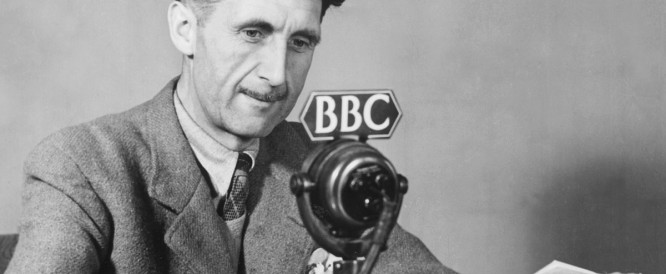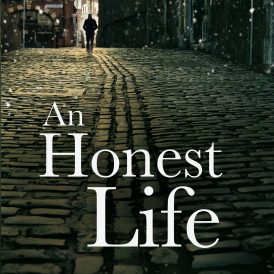Don’t just listen to us, there’s writing advice further afield from some of the world’s greatest writers available to help you on your way.
In this post we’re talking abut George Orwell, famously paranoid author of 1984 and of course that beautiful children’s classic Animal Farm. In his essay “Politics and the English Language” he outlines his manifesto on writing well, which he believes stems from thinking clearly and holding tight to the strong, structural principles of the English Language.
We’ve posted his rules below along with a little explanation of what each means:
1. Never use a metaphor, simile, or other figure of speech that you are used to seeing in print.
This simple advice is brilliant but hard work. Essentially Orwell is telling writers to find what you want to say and don’t be lazy and rely on pulling out an old familiar metaphor that is so overused it has lots it’s power. Finding new words for what you say will give you writing more power. Avoid cliche!
2. Never use a long word where a short one will do.
It’s not about the most selecting the most sophisticated , impressive or elegant word, it’s about finding the perfect and most succinct word that will convey all the meaning you want to convey in as few letters as possible. The more words you use to explain a simple image, the more it looks like you’re uncertain of your ability to convey that image. Example: The road was barren, dry and dusky can effectively become: the thirsty road to adequately convey the image desired.
3. If it is possible to cut a word out, always cut it out.
Simple and effective writing tip here from Orwell. AT TLP we always advise writers to review their work and cut, cut, cut as they go. Take a sentence and reduce its word count to enhance it’s power. Like a concentrated liquid, a smaller amount can have more potency!
4. Never use the passive where you can use the active.
Orwell advised this because he despaired of the vagueness of the passive voice, often used by politicians to avoid implication and responsibility. For him, the active voice is tighter, more effective, delivers more meaning succinctly and clearly makes the point. Exchanging The pen in Karen’s hand scribbled furiously across the page for the words Karen wrote furiously makes a superior sentence in Orwell’s view.
5. Never use a foreign phrase, a scientific word or a jargon word if you can think of an everyday English equivalent.
It might feel great to write something like the ‘the hyperborean water closed around her’ but in fact the sentence ‘the frigid water closed around her’ is far more effective at conveying cold. Don’t try to be too clever by using an out there word and don’t overuse the thesaurus!
Orwell concludes with this, still relevant piece of writing advice:
A scrupulous writer, in every sentence that he writes, will ask himself at least four questions, thus: What am I trying to say? What words will express it? What image or idiom will make it clearer? Is this image fresh enough to have an effect? And he will probably ask himself two more: Could I put it more shortly? Have I said anything that is avoidably ugly? But you are not obliged to go to all this trouble. You can shirk it by simply throwing your mind open and letting the ready made phrases come crowding in. They will construct your sentences for you — even think your thoughts for you, to certain extent — and at need they will perform the important service of partially concealing your meaning even yourself.
Read the full essay here.
Happy writing from #TLP


